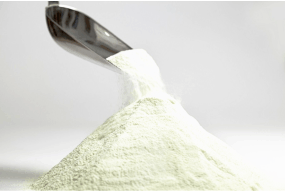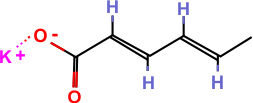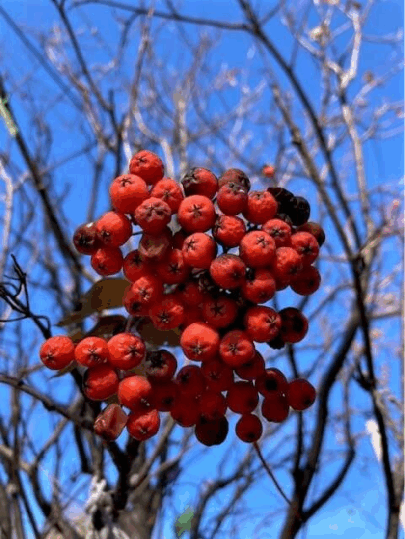What is Sodium Benzoate?
Sodium benzoate is a salt that is widely used in the food industry as a preservative to prevent the growth of bacteria, yeasts, and molds.
This naturally occurring compound is the sodium salt of benzoic acid, which is found in many fruits, such as cranberries, plums, and apples.
Sodium Benzoate is a food Additive!
The U.S. Food and Drug Administration (FDA) recognizes Potassium Sorbate as a safe and effective preservative when used in accordance with approved levels and practices. (please see 21 CFR 172.822).
Why use Potassium Sorbate in Repellents?
Sodium benzoate can be used as an inactive ingredient in bug repellents due to its ability to act as a preservative, which helps to extend the shelf life of the product. This is important because bug repellents are often used infrequently, and the active ingredients can lose their effectiveness over time. By incorporating sodium benzoate into the formulation, the product can remain stable for longer periods of time, ensuring that it remains effective when needed.
Food & Cosmetic Ingredient
It is regulated by the FDA as a food additive and by the Cosmetic Ingredient Review (CIR) Expert Panel as a cosmetic ingredient.
What are some Industrial Uses for Sodium Benzoate?

Potassium Sorbate Powder

The Molecular Stucture of Potassium Sorbate
Sodium Benzoate
in Food Products- Carbonated drinks
- Fruit juices and fruit products
- Salad dressings and sauces
- Pickled foods
- Baked goods
- Candies and chewing gum
Sodium Benzoate
in Personal Care Products- Shampoos and conditioners
- Lotions and moisturizers
- Facial cleansers and scrubs
- Toothpaste and mouthwash
- Sunscreen
- Deodorants and antiperspirants
How many items in you home contain Sodium Benzoate?
What are the Benefits of Sodium Benzoate in food Products?
Preservation: Sodium benzoate is a widely used preservative that can help extend the shelf life of many different types of food products.
Antimicrobial activity: As a preservative, sodium benzoate can help prevent the growth of bacteria, yeast, and other microorganisms that can cause spoilage or illness.
Cost-effectiveness: Sodium benzoate is relatively inexpensive and easy to manufacture, making it an attractive option for food producers looking to reduce costs.
Stability: Sodium benzoate is stable over a wide range of pH values and temperatures, which makes it a versatile ingredient in many different types of food products.
Safety: Sodium benzoate is a generally recognized as safe (GRAS) ingredient, meaning that it is considered safe for human consumption in the amounts typically used in food products.
What are the Benefits of Sodium Benzoate in Personal care Products?
Inhibiting Microbial Growth: Potassium sorbate can prevent the growth of yeast, molds, and bacteria in food products, which can help extend their shelf life and maintain their quality.
Safety: Potassium sorbate is considered to be a safe food preservative and is generally recognized as safe (GRAS) by the US Food and Drug Administration (FDA). It has been extensively studied and has a long history of use in the food industry.
Stability: Potassium sorbate is stable in a wide range of pH levels, making it a versatile preservative that can be used in a variety of food products.
Taste and Appearance: Potassium sorbate is a relatively neutral preservative that does not significantly affect the taste, color, or texture of food products. This makes it a popular choice for preserving a wide range of food products.
Cost-Effectiveness: Potassium sorbate is relatively inexpensive compared to other preservatives, making it a cost-effective option for food manufacturers looking to extend the shelf life of their products.
What amazing Chemist found Sodium Benzoate?
Walter Prescher discovered potassium sorbate while he was studying the chemical properties of berries in 1859. While investigating the chemical composition of berries, he found that some berries had a natural ability to resist spoilage. Prescher believed that there was a chemical compound responsible for this ability, and he began experimenting with various chemicals to identify it.
Eventually, Prescher discovered a natural compound in the berries that was later identified as potassium sorbate. He found that this compound was effective at inhibiting the growth of molds, yeasts, and bacteria, and he realized that it could be used as a preservative in a variety of products. Prescher’s discovery of potassium sorbate was a significant breakthrough in the field of food and beverage preservation, and it paved the way for the use of this versatile compound in many other applications, including personal care products and insect repellents.

Petition to include Sodium Benzoate as an Organic Pesticide. Read more
"Everything You Should Know About Potassium Sorbate"
healthline

References:
Nazeri, V., & Kavoosi, G. (2020). Potassium sorbate: a review on applications in food and biological systems. Journal of Food Science and Technology, 57(3), 679-687.
Rodríguez, A., Rodríguez, M., & Andrade, M. J. (2018). Effect of potassium sorbate on the sensory properties and microbial stability of non-alcoholic pomegranate cider. Food and Bioproducts Processing, 111, 80-85.
Sahan, Y., & Yasar, A. (2019). The use of potassium sorbate as a food preservative and its effect on human health. Journal of Food Processing and Preservation, 43(4), e13924.
Burt, S. (2004). Essential oils: their antibacterial properties and potential applications in foods—a review. International Journal of Food Microbiology, 94(3), 223-253.
Rajkowska, K., & Kunicka-Styczyńska, A. (2015). Application of natural preservatives for food preservation. Environmental Protection and Natural Resources, 26(3), 69-79.
